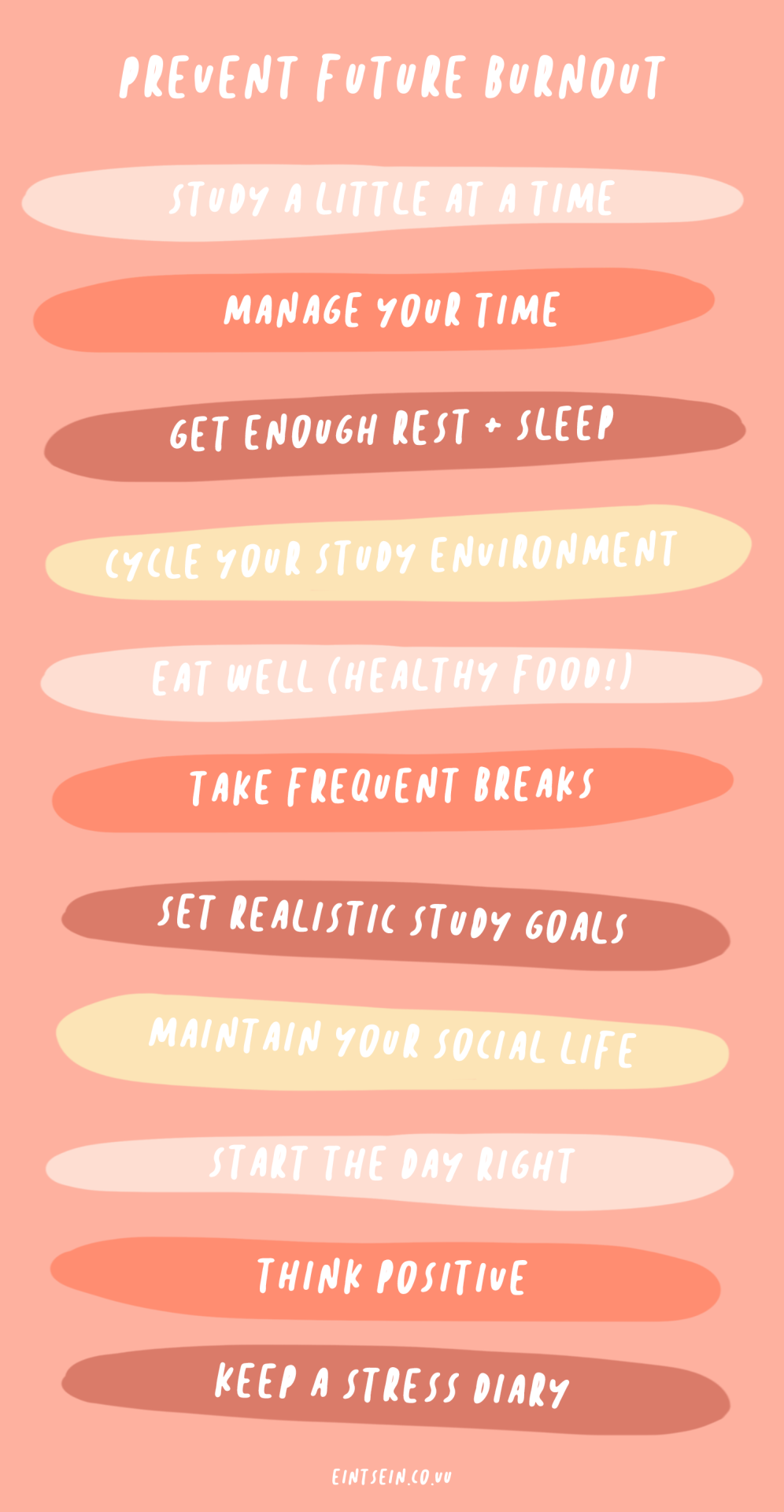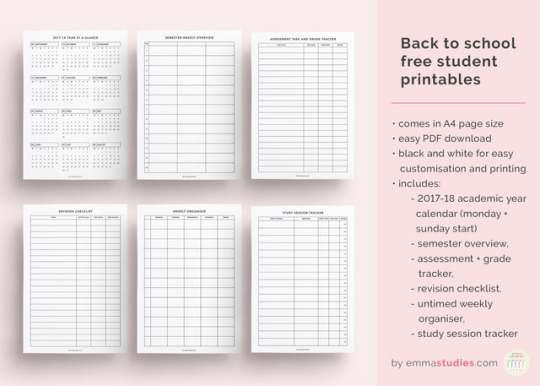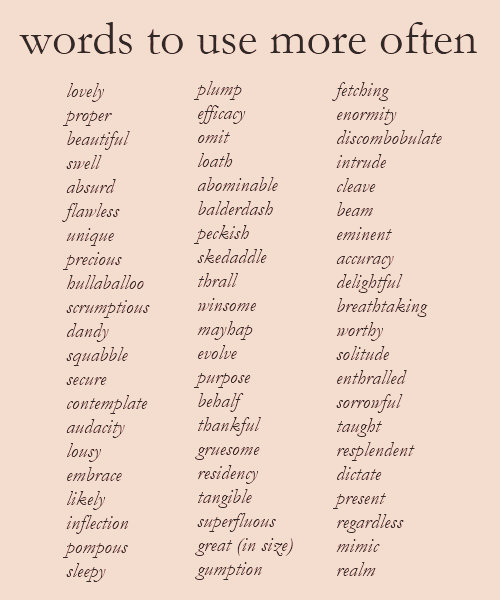Text
I havent seen anyone talk about this yet so im making a post.
So lets say you’re researching something for a paper (or just for fun) and the research paper you want to read is behind a paywall, or the site makes you create a account first, or makes you pay to download, or limits you to only 5 free articles, or otherwise makes it difficult for you to read what you want.

do not fear! copy the link to the article

go to sci-hub.se (the url is always changing so its best to check out whereisscihub.now.sh to find what the current url is)

slap the article link in there

bam! free access!
156K notes
·
View notes
Text
Some words to use when writing things:
winking
clenching
pulsing
fluttering
contracting
twitching
sucking
quivering
pulsating
throbbing
beating
thumping
thudding
pounding
humming
palpitate
vibrate
grinding
crushing
hammering
lashing
knocking
driving
thrusting
pushing
force
injecting
filling
dilate
stretching
lingering
expanding
bouncing
reaming
elongate
enlarge
unfolding
yielding
sternly
firmly
tightly
harshly
thoroughly
consistently
precision
accuracy
carefully
demanding
strictly
restriction
meticulously
scrupulously
rigorously
rim
edge
lip
circle
band
encircling
enclosing
surrounding
piercing
curl
lock
twist
coil
spiral
whorl
dip
wet
soak
madly
wildly
noisily
rowdily
rambunctiously
decadent
degenerate
immoral
indulgent
accept
take
invite
nook
indentation
niche
depression
indent
depress
delay
tossing
writhing
flailing
squirming
rolling
wriggling
wiggling
thrashing
struggling
grappling
striving
straining
1M notes
·
View notes
Text
What are your top tips for dealing with a bad grade or failing a class? :-)
9K notes
·
View notes
Text
2019 materials so far!
Here is everything I have published for 2019 :-)
2019 yearly calendar printables (three designs)
2019 monthly portrait calendar printables (three designs)
2019 monthly landscape calendar printables (three designs)
2019 DIY calendar printables (three designs)
2019 free student printables (2018-19 overview, 2019 overview, 2019 key dates, year in pixels, monthly portrait planner)
2019 student planner from my Etsy
2019 calendar sets from my Etsy
2019 full year digital wallpaper sets from my Etsy
There will be more to come in the next few weeks :-) If you have requests, suggestions, etc please send me a message x
762 notes
·
View notes
Text

here are some title ideas i just made!!
28 notes
·
View notes
Text
2018 Student Guide
With the start of 2018 well underway, I wanted to make a masterpost full of links on how to adjust your perspective with studying. Perhaps you want to become a better student overall, improve your focus or get into your dream college, there is always something we want to do better! Hopefully these tips will make 2018 your best academic year yet!
Organisation
2018 student planner
planner brand recommendations
planner vs bullet journal: pros and cons
how to set up a bullet journal
setting up a digital bullet journal
bullet journal spread ideas
bullet journal decoration hacks
bullet journal brand recommendations
whats in my bag
my favourite stationery
back to school basic supplies
how to improve your handwriting
handwriting font suggestions
balancing study and work
desk/workspace essentials
student finance tips
2018 monthly planner printables
Productivity
productivity and time management applications
how to remove distractions
types of procrastination and how to deal with them
google chrome new tab options for improved productivity
10 small ways to improve your productivity
applications to block websites
no distraction writing applications
100 days of productivity challenge
how to focus in class
how to stick to a schedule
how to stay alert
how to build self-discipline
how to organise for exams
my after school routine
how to reduce perfectionist ideas
Motivation
what to do when you’ve tried everything
how to gain back motivation
motivational monday printables
how to stop avoiding studying
what to do when you feel exhausted before studying
how I stay motivated
tips on maintaining motivation
how to start a studyblr
how to utilise your studyblr for motivation
how to set up a studygram
dealing with competitive people
how to bounce back from ‘failure’
how to learn from a lower than expected grade
how to structure a weekly review
how to deal with a difficult class
things to do during holidays/study vacations
Studying
applications for students
how to take effective class or lecture notes
how to take notes from a textbook
how to prepare for exams
my note-taking method
my notebook system
how to write faster
how to study more effectively
how to summarise information
how I organise my binders
good habits to implement
how to study (my method)
how to revise from notes
how to organise a colour code
how to memorise information effectively
how to memorise quotes
how to use flashcards
how I reduce waffle and narration in essays
tips for essay writing
how to find out where you’re going wrong
how I prepare to study
different ways to study
how to study during the semester
how to annotate a book/novel/etc
how to get ahead in school
how to break up a large textbook
studying as a visual learner
how to practice and present a speech
mindmapping apps and extensions
how to deal with online classes
how to study a language
how to study maths
how to improve group assessments/projects
Self Care
how to improve your sleep schedule
how to wake up earlier
how to study when sick
over-coming self doubt
dealing with stress
how to balance studying and anxiety
how to balance studying and depression
apps that help with depression
ways to reward your productivity
my favourite tv shows
my favourite podcasts
ways to use empty notebooks
how to be more sociable
tips for getting a job
advice for the first day
things (personal, academic, etc) to do every week
Printables
2018 monthly planner printables
2018 student printables (includes 2018 overview + calendar, daily + weekly + monthly planner, 30 habit tracker, class overview and timed worklog)
weekly study schedule
weekly planner
weekend planner
daily planner
assessment planner
subject to do list planner
study session planner
exam revision printable pack (includes revision checklist, formulas + definitions sheet, essay + project planner, weekly schedule)
note-taking printables (includes dotted, grid, lined, cornell method)
organic chemistry printable
literary techniques and devices sheet
100 days of productivity tracker printable
ultimate student organiser pack
study and revision pack
2018 student planner
2018 weekly planner
pomodoro tracker
grade and assessment planner pack
essay guide and planner pack
productivity planner
student reading journal printable
student finance planner
goal and habit planner
customisable weekly study planner
Other posts | Printables | Instagram | Youtube | Pinterest | Etsy Shop
45K notes
·
View notes
Video
I woke up really early the other morning and filmed the rain.
360K notes
·
View notes
Text
How to Deal with Study Burnout

As students in this day and age, it’s quite common for us to juggle rigorous academic responsibilities and overwhelming extracurricular activities. As a result, we might feel burnt out. But what exactly is burnout?
Burnout is when you feel physically and mentally exhausted as a result of constantly lacking the energy required to fulfill the demands of your studying.
Burnout can be broken down into three parts:
Exhaustion is what causes you to feel tired all the time and unable to concentrate. You could also get sick or have trouble sleeping.
Cynicism or depersonalization is when you feel disconnected from those around you, e.g. your friends and family.
Inefficacy is a decrease in productivity, efficiency, or quality of your work.
How do you know if you have burnout?
Symptoms may vary, but they include:
Being unable to absorb new information
Intellectual exhaustion
Decreasing academic performance and productivity
Feeling like you need to prove yourself
Making yourself work even more, even though you’re exhausted or being unwilling to study further
Neglecting your needs
Long term fatigue
Showing disinterest in things you normally enjoy, e.g. hobbies or friends
Denying that something’s wrong with you (may manifest in the form of aggression)
Avoiding social interaction
Feeling empty and depressed
What can I do to fix it?
Here are some short term solutions for dealing with burnout.

1. Take a power nap
Power naps are life changing. They help you recharge your energy and get you ready to start working again. They also improve learning, memory, creativity, alertness, and mood. I would recommend napping for 30 minutes at most, because anything more will lead to a longer sleep session.
Optional: drink coffee before your nap - something that takes a short while to consume like a shot of espresso - so that you’ll feel alert and revitalized afterwards!
2. Take a shower
A cold one will wake you up, but a warm one will calm you down. I suggest starting with warm water, then ending with cold water.
3. Exercise
Whether it’s playing soccer or doing yoga, the important thing is to get moving! Exercise releases endorphins or happy hormones that help you combat stress.
4. Run a quick errand
This will help take your mind off things while also getting something done! You’ll also end up walking, which is technically a form of exercise.
5. Call or visit a friend
Sometimes what we’re lacking is social interaction, and hanging out with a friend definitely helps. Whether it’s providing you with a distraction or giving emotional support, your friends are always there to help you. Plus, science has shown that being with friends reduces your cortisol (stress hormone) levels.
6. Eat a snack
Preferably a healthy one. Eat something with proteins, vitamins, and fibers to boost your mood. Here’s a list of mood boosting foods.
7. Surf the web
This requires A TON of discipline, but it’s definitely a game changer. Surfing the web is one of the most relaxing things you could do. I personally look for a good laugh during my study breaks, so I’d watch a comedy or scroll through memes to get those happy hormones up and running.
8. Do an activity you find interesting, e.g. a hobby
We all need happiness in our lives, and our hobbies are perhaps the best way to find that joy. You could sit down with a page turning adventure, or go outside and shoot hoops, or listen to a podcast, or even bullet journal, as long as you’re having a good time.
9. Listen to music
Music is one of the ways we gain energy, so I always make time for it during the day. However, you should choose the right music, because not all the music you love is going to make you feel energized. For me, it’s pop punk with hard hitting beats, thundering guitars, and really upbeat, enthusiastic vocals. Some of you might be energized by mellow music with dreamy vocals that make you feel like you’re floating in the clouds. If you choose the wrong music, you might just end up feeling sluggish and drained.
10. Get some fresh air
Your brain needs 20% of the oxygen in your body. Fresh air brings more oxygen to your brain so that you can think more clearly, feel less tired, and concentrate more easily.
How do I make sure I don’t get it in the future?
Avoiding study burnout in the long term has a lot to do with our study habits - as well as our daily habits. We need to make sure that our bodies and minds receive the things they need, and that we aren’t overworking them.

1. Study a little at a time
Break up your notes into smaller, more easily digestible pieces and learn a little at a time. This way, you’re not overwhelming your brain, and you have time to let that new knowledge settle in.
2. Time management
Having a good study schedule is crucial in preventing burnout. You don’t want to force yourself to work at your slow hours. Aside from that, you definitely shouldn’t leave things until the last minute, and sticking to a schdule will help you pace yourself. Here’s a post I wrote on How to Make an Efficient Revision Schedule and How to Beat Procrastination.
3. Get enough rest
I cannot stress enough that sleep is so important for you. It improves your cognitive functioning and also enhances your mood, making it less likely that you’ll get burnt out. Make sure to take power naps, too, if you feel like you need them.
You also really shouldn’t pull all-nighters. Sleep is also involved in cementing memories in your brain, so if you study a little before you sleep, you’re bound to remember more than if you studied a chapter during an all nighter.
Having trouble sleeping? Here’s a post I made about my night routine and how to get better sleep.
4. Cycle your study environments
Your body and mind are bound to get tired from being in the same location for prolonged periods of time. The best way to fix that is to study in different places: at your desk, your backyard, the dining table, a cafe, a friend’s house, the library, etc.You should find a frequency that works for you. I like to switch it up every 2-3 days; some people change locations every week.
5. Eat well
As I’ve mentioned before, healthy foods with protein, vitamins, and fiber greatly improve your mood and your physical health. Proper nutrition will give your brain the power it needs to push through. Also make sure not to skip meals; honestly you’ll just end up feeling terrible afterwards.
6. Take frequent breaks
Let’s face it, we’re human, we’re bound to get tired from studying for a long time. Taking breaks enables our brains to digest the information we just learned in a pace that works for it. Breaks also help us focus on something other than studying, so that when we do get back to it, we’ll be ready to digest even more information.
7. Set realistic study goals
You’re gonna memorize all 500 pages of your biology textbook in one day? Good luck with that. Some of you might be compulsive studiers, but this kind of habit isn’t very good for your brain or your physical health. Studies have shown that excess studying can lead to lower productivity, fatigue, and - you guessed it - burnout. In the end, this will result in lower academic performance, perhaps even in the long run. So instead of trying to study so much in one sitting or one day, break up your material into chunks.
8. Maintain your social life
Wherever you lie on the introvert-extrovert spectrum, everyone needs social interaction once in a while. It keeps you sane and healthy. Go out with your friends, have a sleepover, or maybe even a study date.
9. Start the day right
What we do in the morning can significantly affect our mood for the rest of the day. Sometimes we don’t even feel like getting up in the morning, or doing anything that day. One thing you should do is create a morning routine you enjoy to jumpstart your day. Here are 8 Morning Habits for Productivity.
10. Think positive
When we’re feeling burnt out, it’s hard to not think negatively about everything. In reality, that just makes our condition worse. So think positively! Start small, like congratulating yourself for getting out of bed today, and then work your way up to bigger accomplishments, like finishing 2 chapters of your textbook.
11. Keep a stress diary
This is kind of a new concept for me, but it’s really great. How it works is that each day, you would write down all the things that made you stressed and how they made you stressed. This will help you identify the things you’re doing that’s causing your burnout, e.g.
Too long study hours? take regular breaks
Too much time in the same place? cycle your study environment
Not eating properly? set aside time to eat healthy meals at least 2 times a day
Not doing the things you love? schedule in time for that, e.g. during your long breaks
Not getting enough human interaction? make a study group
Too much negative thinking? adopt a positive mindset (you can always start small)
Not getting enough sleep? fix your sleep schedule
And that’s all I have for you guys this time. Hope these tips will help you manage your stress and study burnout whenever you have them. And if you have any questions, don’t hesitate to drop an ask!
P.S. if any of you want to see the images in this post in better quality, click here (link to google drive)
29K notes
·
View notes
Text
Discipline 101
So you have the ambition. You have all the answers. All you lack is the discipline.
Unsurprisingly, this is a problem most people have, so don’t worry, you’re not alone.
Tell me, do you have a concrete goal? Or is it something vague like, “Rule the world”, or “get rich” or “become famous”?
Usually those who lack discipline have a habit of getting ahead of themselves and they end up having all these fantastic goals without any knowledge of how to achieve them. They have big ambitions, but no clear plans, no visible steps, and no foundation to start their life on. It’s the equivalent of standing on one side of the river and being able to see the other side, but having no method of making it across.
It’s good to have a starting point, and know what you want in the end. But the path to earning what you desire isn’t pre-made for you. It’s up to you to lay every brick and measure everything out. In your life, you’re the architect, you’re the engineer, you’re the investor, you’re everything.
So the how do you get some discipline? It’s simple: You need to know how you’re going to do something, before you set out to do it.
Step 1: Get Motivated
Make a list. And make sure you handwrite it. Two columns. Think about everything you have a problem with, all your interests and passions, and everything you have ever wanted in one column. In the other column, spend as much time as you need to come up with solutions to each issue/goal. Don’t write one side, without the other.
Spend a couple days looking at that list. Make it into a poster, use it as your phone background, it doesn’t matter as long as you make sure you see it every day until you feel something. I’m saying that incredibly vaguely because people are fueled by different emotions. For me, it was rage.
Every morning, I stared at that list of everything I’d ever wanted, every little problem that made my life miserable and I got furious. To see what my life revolved around so callously written on paper, and feeling so close yet so far, that drove me insane. My anger made my passion double, and nothing fuels discipline more than passion.
Step 2: Plan
Once you’ve gotten yourself suitably motivated to take charge of your life, don’t waste any time. Start by creating a plan. Now that you know what you want to do, figure out how to do it.
Create a timeline for the next year and then a looser version for the next ten years. It can sound daunting, but when you fall off track at some point (and I can guarantee, you will) you’re going to need something to point you in the right direction.
For your detailed, one year plan, make sure your goals are distributed into two categories: Short term and Long term.
For your short term goals, list everything you want to achieve in that year and how exactly you’re going to do it.
For example, if you want to lose weight, I don’t just want to see you write down “lose weight”. Tell me how. Tell me how much. Tell me by when. “Lose five pounds by October by going to the gym 4 days a week”, or “Cut down on eating X food so I can lose 5 pounds by October”, etc. Be specific.
For your long term goals, pick 3 things you want in general. The first thing should be something you can achieve in that year, and it should be the focus of your entire year. The second thing is something you don’t necessarily need, but it makes you happy anyways (like spending more time on a hobby, or saving money for a new designer bag, etc.). The third thing should be something that stays fairly consistent in every single ‘year-plan’ you have. Ultimately, it’s either your most important desire, or very close to it.
These long term goals will help you put together your 10 year plan, and create a better sense of direction in your life.
Step 3: Prioritize
Learn to prioritize these tasks and goals. Don’t go to sleep until you’ve felt like you’ve completed all your tasks for the day. Don’t give in to distractions and the illusion of “well-deserved fun”. Sure, going clubbing may seem fun on Saturday, but it won’t be fun on Sunday night when you’re frantically writing a paper that’s due in two hours. There’s always time for fun later, there’s always another concert and another football game and another party. But some things have a greater impact on your life than just one night of “fun”.
I’m not saying become some kind of a workaholic. There’s always a time and a place for everything. If you try to follow your plan without any distractions or any fun, you’re going to get bored and then you’re start to hate your plan and your life and then it gets messy. Avoid all that by knowing when you’ve earned a break. It’s very important to discern when you can afford to step away from work to have fun with your friends and when going out is just going to distract you from an important deadline.
Step 4: Act
Now, don’t just write these goals down and shove them in a dusty file on your desk. Keep them within arms reach. Look at them frequently. What I like to do is every morning, I write down a short term goal I have for that week/day/month and one of my long-term goals in my planner. It’s just a little reminder and keeps me focused throughout the day. I don’t feel like my day is complete or productive until I’ve had some progress on either the long term or short term goal.
Also, keep in mind that while planning is a great thing to do, don’t expect yourself to stick to every single detail of the plan. Life happens, and there are certain things you cannot control (although it wouldn’t hurt to try). Don’t be too hard on yourself if you find yourself unable to complete one of your goals for the day/week/month. It happens to everyone, we’re all human. What you need to focus on is the big picture and move on. Don’t waste precious time wallowing in past mistakes. Time doesn’t wait for anyone, least of all for you.
Step 5: Commit
Discipline doesn’t come from just being motivated or having a plan. It comes from consistency. Form productive habits, start efficient routines, and stick to them. For example, if you want to become a writer, make sure you write something, however small it is, everyday. One sentence, one paragraph, one page, the amount doesn’t matter. It’s important to understand that something, however small, is better than nothing. This constant dedication to your work will help you move one step closer to your goals.
The more you force yourself to stay in line when faced with temptation, the easier it will be every other time you are faced with the same challenge further down the line. Everyone forms habits. Just make sure they’re the right ones and you’d be shocked at how much your life could change.
Everything you need to become disciplined is inside of you. Everyone has the willpower and motivation. It’s just some people know what to do with it.
Just remember: Get motivated. Plan. Prioritize. Act. Commit
And the world is yours.
7K notes
·
View notes
Photo

Back to school free student printables
As we all head back to school, college and university, I wanted to release a few free printables to help you get organised before the term starts! We all need that little bit of motivation and reassurance, so I hope these help.
Download the 7 page file from here
I hope you enjoy using and customising these printables! If you upload a photo featuring it, I’d love to see. Please tag me on Tumblr with #emmastudies or on Instagram with @emmastudiess. You can see other people using my printables by visiting the #esprintables tag on my blog!
If you want to find more organisation printables and support me, please check out my Etsy shop with lots of downloads dedicated to students. You can use ‘student10′ to get 10% off any purchase! :-)
Other posts | Printables | Instagram | Youtube | Pinterest | Etsy Shop
4K notes
·
View notes
Note
hello emma, so i just started school around 3 weeks ago and i really need the good grades, i've been awfully busy with my extracurricular activities and homework, which im okay with but im just really scared that im putting in all this effort and i'll end up accomplishing nothing
Hellooo! Time management has probably been the most requested topic coming into my ask over the past few days so I’m going to be quite broad in this answer so I can help other people too. Hopefully, that is okay! Here are a few things:
find a planning method that works for you - whether it’s a bullet journal, an agenda, printables or a digital calendar, test out the ones which work best for you. When you’ve found the best time management process for. you, you’ll be much more inclined to keep on top of work. If you’ve got this organised before you start, you’ll stay on-top a lot better! Here are some pros and cons of bullet journal vs planner.
write down dates as soon as you get them - once you know when something is coming up, put it in your planner/bullet journal/phone. I’d recommend putting in reminders each week so you don’t forget. Make sure you keep these in view!!!
learn to stick with a schedule - I think this is the hardest thing is actually implementing the plan you’ve created. Here is a post with a couple of tips about maintaining your plan!
write down tasks before bed - I have a post-it note by the side of my bed and will usually write down things that I have to do the next day. Sometimes they’re small, menial things that I might forget and others are really important. It is good to have that reminder and in case you think of something whilst in bed.
build self-discipline - when you’re super busy, you can’t always afford to have a lot of time doing nothing because “you’re not motivated”. It is true disciplining yourself takes a while but getting into the mindset is really what gets you started. Here are some more tips.
learn to prioritise your tasks - this is crucial for students who are balancing numerous things like work, extracurriculars, jobs and a social life. Put the immediate and crucial tasks first. That Facebook notification or group text can wait until you’re done. This printable might really help if you struggle to determine what is and isn’t important.
have a review day - set yourself up for one day to review the previous week and plan for the next. Reflect on what went well, what didn’t, and what you need to change to improve. Critically evaluating and planning ahead should help you keep up with what is coming and stay organised!
don’t do the unnecessary - I think rewriting notes is a big question mark for the studyblr community. For some people, it doesn’t work and others it does. Don’t let pressure from things like Tumblr push you into doing this you don’t need too!
figure out when you’re most productive - if you work best when you’ve just woken up, tailor your day to suit that. If you find you work best in the evening, spread out your tasks so you can do the more demanding/complex ones later on.
use the two-minute rule - I’ve mentioned this before and it is a really good way to organise yourself and help prioritise your tasks. If something takes less than two minutes, do it. Otherwise either delegate or defer it. Here is a visualisation to help you see how it works.
learn to say no - if you’re busy, don’t let things pile up out of obligation. If you can say no and want to, be brave and express that you can’t do that thing right now. For instance, if your friends say “let’s go to the movies”, you can politely apologise and ask if you can do it when you’re not as swamped. Whilst you shouldn’t deny every social event, it is important to recognise when things should be passed up because of other more pressing tasks.
mark your progress - the best way to monitor how you are going is to track your daily productivity. Jerry Seinfield emphasises that using a calendar (or habit tracker) is the best way to consistently perform tasks day after day. He says each day he has written something he will put a large red cross through the day on a wall calendar. “After a few days, you’ll have a chain. Just keep at it and the chain will grow longer every day. You’ll like seeing that chain, especially when you get a few weeks under your belt. Your only job next is to not break the chain.“ This way you can see how well you’re doing and motivate yourself to keep it up!! Here is a habit tracker I made!
download applications - gotta love apps that are actually helpful! Here are some favourites that can help you time your study, track your productivity, etc.
improve your sleep pattern - the better you the sleep, the easiest it is to stay awake during the day. Here are some tips to improving your sleeping habits.
I hope this helps! If anyone has other tips, please share!! xx
130 notes
·
View notes



